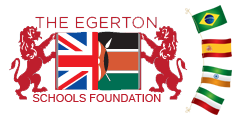EYFS
Early Years Foundation Stage Curriculum (EYFS)
Our Reception children follow an early learning curriculum focusing on their development in seven areas of learning.
Three Prime Areas:
- Communication and Language
- Physical Development
- Personal, Social and Emotional Development
Other Areas of Learning:
- Literacy
- Mathematics
- The World
- Expressive Art and Design
Learning for young children should be an enjoyable and rewarding experience in which they explore, investigate and discover their developing knowledge, skills, understanding and attitudes in all areas. Reception children are provided with opportunities to play in groups and independently and to participate in adult directed tasks, supporting them in developing the key skills necessary for a smooth transition into Key Stage 1.
There are three characteristics of learning that are strong aspects of all of the areas of learning:
- Playing and exploring
- Active Learning
- Creating and thinking critically
Personal, social and emotional development
Within a nurturing environment children are individually supported in developing confidence, independence and self respect. They are encouraged to work and concentrate independently and also take part in the life of the class, sharing and cooperating with other children and adults. Through activities, conversation and practical examples, they learn acceptable ways to express their own feelings and have respect for the feelings of others. All children are given the opportunity, as appropriate, to take responsibility for themselves and also for the group, its members and its property. This is evidenced by snack time, story time, singing, role playing games, physical play, choosing activities, settling into school, tidying up and making friends.
Communication, Language and Literacy:
Children are encouraged to extend their vocabulary and fluency by talking and listening in group activities and by hearing and responding to stories, songs and rhymes. Children are taught the alphabet, through the means of letter sounds, once they confidently know all the letter sounds these are used to build up simple words and then sentences. When they are ready to write children are encouraged to draw and write symbols for themselves. A well stocked and comfortable book corner gives every child the opportunity and encouragement to become familiar with books, an ability to handle them and an awareness of their uses as a source of reference, as well as stories and pictures. We also use imaginative play, games, puzzles, music, domestic play, and computers to further develop literacy skills.
Early Reading - Little Wandle:
At Egerton, we believe that all our children can become fluent readers and writers. This is why we teach reading through Little Wandle Letters and Sounds Revised, which is a systematic and synthetic phonics programme. We start teaching phonics in Nursery/Reception and follow the Little Wandle Letters and Sounds Revised progression, which ensures children build on their growing knowledge of the alphabetic code, mastering phonics to read and spell as they move through school.
As a result, all our children are able to tackle any unfamiliar words as they read. At Egerton, we also model the application of the alphabetic code through phonics in shared reading and writing, both inside and outside of the phonics lesson and across the curriculum. We have a strong focus on language development for our children because we know that speaking and listening are crucial skills for reading and writing in all subjects.
Reasoning, Problem Solving and Numeracy:
The children learn in a variety of ways in the early stages of their development. This is mainly with adult supported practical experience, children become familiar with sorting, matching, ordering, sequencing and counting activities, which form the basis of early mathematics. As they use their developing mathematical understanding to solve practical problems, children are assisted to learn and use the vocabulary of mathematics to identify objects by shape, position, size, volume and number. Songs, games and picture books all combine to help the children become aware of number sequences and use simple mathematical operations, e.g. addition.
Knowledge and understanding of the world:
A safe and stimulating indoor/outdoor environment allows children to explore and experiment with a range of natural and manufactured materials. They learn to observe the features of objects and substances, such as recognising differences and similarities and to share and report their findings. Children are assisted in exploring and understanding their environment, both within the group and also the community. A range of safe and well maintained equipment enables the children to extend their technological understanding. Some activities available are sand and water play, computers, different types of dough, cooking looking at the natural world and the weather.
Physical Development:
A range of indoor and outdoor play equipment allows the children to develop their confidence and their gross and fine motor skills. Adult supervision enables children to safely create and meet physical challenges, developing an increasing level of skill and control in moving, climbing and balancing. At the same time children are supported in the development of the fine motor skills needed to manipulate pens and pencils and to handle small objects with increasing skill and precision. The children will complete 2 structured PE sessions per week.
Creative Development:
Children are encouraged to use a wide range of resources in order to express their own ideas and feelings and to construct their own individual response to experience in two and three dimensions. Art equipment including paint, glue, crayons and pencils as well as natural and recycled resources provides for an open ended exploration of colour, shape and texture and the development of painting, drawing and collage skills. Children join in with and respond to music and stories, and there are many opportunities for imaginative role play, both individually and as part of the group

 Egerton Primary School
Egerton Primary School
